Latest articles
28.03.2025
“Inspiring innovation in language education” - through a wealth of new resources
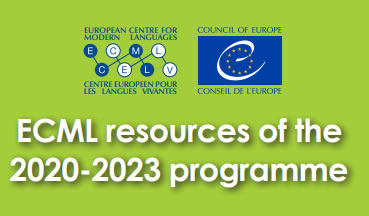
The European Centre for Modern Languages (ECML) of the Council of Europe is dedicating this special issue of its European Language Gazette to the launch of the resources resulting from its programme “Inspiring innovation in language education: changing contexts, evolving competences”. From 2020-2023, nine projects addressed the themes of: formative assessment in early language learning and for newly arrived migrant children, languages in support of digital citizenship and other transversal skills, the CEFR Companion Volume and linguistic mediation, CLIL in languages other than English, neighbouring languages in cross-border vocational training, teacher competences for pluralistic approaches. These issues were identified by member states as priority areas when initially establishing the programme.
We encourage you to use these innovative resources, to adapt them to your respective contexts, and to share them within your networks, colleagues and institutions who may benefit from them.
A number of the resources are also featured within the Centre’s current training and consultancy activities – where member states can request national workshops on themes of ECML expertise – with the workshops customized according to the specific context.
Table of contents
“Inspiring innovation in language education” – through a wealth of new resources
Launch of new resources
E-Lang Citizen – Digital citizenship through language education
TePA – Developing teacher competences for pluralistic approaches – Tools for teacher education
METLA – Mediation in teaching, learning and assessment
Building blocks for planning language-sensitive teacher education
RECOLANG – Resources for assessing the home language competences of migrant pupils
Enhancing language education in cross-border vocational education
CLIL in languages other than English – Successful transitions across educational stages
PALINGUI – Young children’s language learning pathways – Making early language learning visible
VITbox – CEFR Companion Volume implementation toolbox
Quick links
Enjoy this issue: English – French
11.12.2023
Final conference of the 6th medium-term programme 2020-2023 (13-14 December 2023, Graz, Austria & online)
“Inspiring innovation in language education: changing contexts, evolving competences” – Join the livestream!
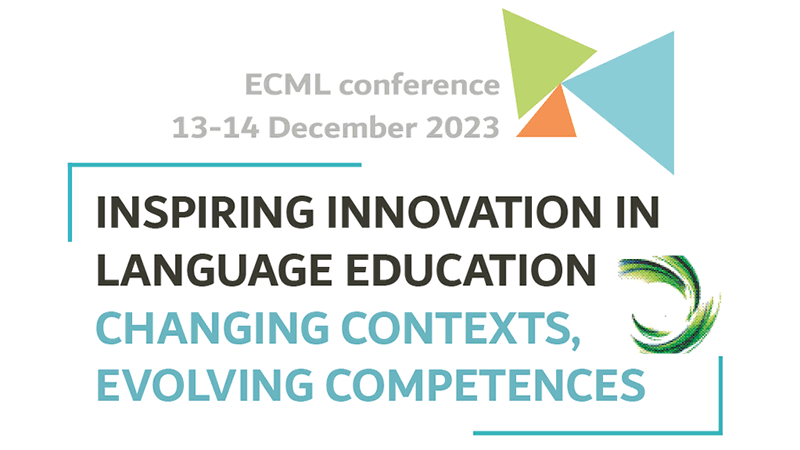
The conference represents the culmination of the four years of work of the ECML’s “Inspiring innovation in language education: changing contexts, evolving competences” programme, involving, among others, 9projects, 1think tank, 12offers of training and consultancy (TaC) and a series of initiatives developed with the support of the European Commission.
The conference is aimed at all language education professionals and in particular at ECML stakeholders, policy makers and persons with a professional focus on the practice of language education (curriculum development, teacher education, material design…).
The programme involves plenary presentations, speeches, a round table, a series of smaller workshops for the presentation and discussion of programme outputs and outcomes as well as envisaged links to activities in the 2024-2027 programme.
The workshops on the second day of the conference will be organised thematically:
- Language teacher and learner competences,
- Transversal dimension of language education / Competences for life and work,
- Plurilingual and intercultural education,
- Languages of schooling; language in subjects.
Within each given theme there will be a focus on the completed project resources and related TaC activities from the current programme. Presenters will focus on the inspiring and innovative aspects of their TaC activity/new resources and will consider how the different approaches and materials presented in their thematic session complement one other.
This will also be an excellent opportunity to get a preview of the new ECML programme “Language education at the heart of democracy” (2024-2027).
In order to ensure access to a wider audience, the event will be streamed in both working languages (English and French) and the recordings made available on the ECML website.
Conference web page: English – French
Conference programme: English – French
Join the live streaming here – no registration required: English – French
#ECMLCELVconf2023
06.06.2023
CLIL LOTE transitions – the final expert meeting (Graz, Austria, 17-19 April 2023)
The project team and the project consultant Marisa Cavalli met on 17-19 April 2023 in Graz!
The meeting objectives were:
- to define the final webpage content and design with the ECML;
- to go through, give feedback to, coordinate and finalize products developed by the working groups;
- to develop a time plan and coordinate tasks/responsibilities in the final project phase.
During the three intensive working days we discussed the following main project outputs:
- output 1: the project’s final webpage content and design;
- output 2: models and scenarios including challenges and responses from different contexts to illustrate the recommendations;
- output 3: teaching materials and learner/teacher videos from different contexts to underpin the recommendations and scenarios.
The meeting demonstrated again just how much effort the whole CLIL LOTE network has been invested in this innovative project. The network has played a very significant role in helping the team to develop the area of transitions in CLIL LOTE – and without them it would have been impossible to fulfil this task!
Petra Daryai-Hansen, project coordinator
- Project website “CLIL in languages other than English – Successful transitions across educational stages” in English, French and German: www.ecml.at/CLILLOTEtransitions

21.12.2022
“CLIL in languages other than English – Successful transitions across educational stages”: the project workshop – new collaborations in the CLIL LOTE network
Our project workshop took place 16-17 November 2022 in Graz. From the perspective of the 25 participants, the workshop’s main objectives were to:
- be introduced to the field of CLIL LOTE transitions;
- become familiar and reflect on guiding principles for CLIL LOTE and recommendations for CLIL LOTE transitions;
- reflect on and contribute to (further) develop materials that show ways in which CLIL LOTE transitions can be strengthened;
- make products developed in the project (guiding principles for CLIL LOTE, recommendations, materials) accessible for the networks of the workshop participants;
- become part of the CLIL LOTE network.
After the workshop, the LinkedIn group ‘ CLIL LOTE network’ / ‘EMILE dans des langues autres que l'anglais’ / ‘CLIL in anderen Sprachen als Englisch’ was created as a forum for the CLIL LOTE network. In this group, the network members can, for example, share ideas, materials, publications, conference calls.
You are very welcome to join the group: https://www.linkedin.com/groups/9274303/
Petra Daryai-Hansen (project coordinator)
- Project website “CLIL in languages other than English – Successful transitions across educational stages” in English, French and German: www.ecml.at/CLILLOTEtransitions

17.10.2022
10th EDiLiC conference: Call for papers – deadline: 10 November 2022
10th International Conference of the Education and Linguistic and Cultural Diversity Association (EDiLiC) will take place in person at the University of Copenhagen on 28-30 June 2023. It will be a forum for dialogue between all those engaged in research and practice in plurilingual education, pluricultural education, in Content and Language Integrated Learning, and the intersections between these fields. The particular focus of the conference will be on spaces of transitions, continuity, and disruptions across educational levels and learning contexts from early childhood to adulthood.
So far, the EDiLiC conferences have been held in France, Greece, Hungary, Poland, Portugal, Spain, and Switzerland. Copenhagen as the venue for the 10th EDiLiC conference opens new opportunities for collaborations between the Nordic countries and the countries that are traditionally represented in EDiLiC.
Presentation of papers, workshops, and panel sessions can take place in English, French, and the Scandinavian languages.
Confirmed collaborative plenary speakers are:
- Britta Hufeisen & Anne Holmen
- Heike Speitz, Tom Steffensen, Anne Pitkänen-Huhta & Åsta Haukås
- Nathalie Auger & Danièle Moore
- Petra Daryai-Hansen, Natascha Drachmann & Line Krogager Andersen
- Sílvia Melo-Pfeifer & Joana Duarte
- Ulrike Jessner & Line Møller Daugaard
Find more information and the call for papers here.
30.08.2022
IDT Conference “mit.sprache.teil.haben” (Vienna, Austria, 15-20 August 2022): ECML contributions
From 15-20 August 2022, 2 800 participants from 110 countries met at the University of Vienna for the conference entitled “mit.sprache.teil.haben”. The host associations ÖDaF (Austrian Association for German as a Foreign and Second Language) and IDV (International Association of Teachers of German), in close cooperation with the Goethe-Institut, offered a rich programme to stimulate discussion on both academic and practical aspects of teaching and learning German.
In her video greeting at the opening of the IDT, the ECML director Sarah Breslin responded to the conference motto on the role of languages for active participation in society – (mit.sprache.teil.haben) – by emphasising the vital role of plurilingualism and intercultural competences for a democratic culture in Europe.
The initiatives and resources offered by the ECML to teachers and other language professionals were presented at a well-attended ECML information stand. On the opening day itself, two members of the ECML Governing Board were welcomed there: Claudia Petiti from Switzerland and Steinar Nybøle from Norway.
Two ECML events were offered as part of the conference programme: a presentation of an ECML project: “CLIL in German: Transitions between educational levels” offered by Petra Daryai-Hansen, Beate Lindemann and Aina Būdvytytė (see the report of this team below), and a workshop on the ECML resource “A roadmap for schools to support the language(s) of schooling”. Participants highlighted the practical relevance and innovative potential of the presented ECML approaches for innovative language education in their feedback.
The ECML was also present at a book presentation organised by the Vienna Chamber of Labour. The new publication “Fokus Mehrsprachigkeit. 14 Thesen zu Sprache und Sprachenpolitik. Beiträge aus Österreich und Europa” (Focus Multilingualism. 14 theses on language and language policy. Contributions from Austria and Europe) exemplifies how multilingualism can strengthen the sustainability of a society. It includes an article by Susanna Slivensky (ECML) entitled “Mobilität und Sprachenlernen für Demokratie in Europa. Perspektiven des Europäischen Fremdsprachenzentrums des Europarates” (Mobility and Language Learning for Democracy in Europe. Perspectives of the European Centre for Foreign Languages of the Council of Europe). This is complemented by a contribution from the perspective of the European Commission/Kristina Cunningham and Claudia Kropf: “Vom Binnenmarkt zum Europäischen Bildungsraum: Mehrsprachigkeit und Mobilität als Motor für Integration, Wachstum und Beschäftigung in der Europäischen Union” (From the Single Market to the European Education Area: Multilingualism and Mobility as an Engine for Integration, Growth and Employment in the European Union).
Further encouraging language policy priorities were set at the IDT closing event, with a plenary lecture by Hans-Jürgen Krumm on the topic of “Sprachengerechtigkeit” (language justice) and the “Wiener Thesen zur Sprachenpolitik – 11+1 Forderungen zur Stärkung gesellschaftlicher Teilhabe” (Vienna Theses on Language Policy – 11+1 Demands for Strengthening Social Participation). Set against the backdrop of the new recommendation of the Council of Europe's Committee of Ministers on the importance of plurilingual and intercultural education, these are welcome synergies to strengthen innovation in language education.
“CLIL in languages other than English – Successful transitions between educational stages”: report of the ECML team
The ECML project “CLIL in languages other than English – Successful transitions between educational stages” was presented at the IDT in Vienna on Thursday, 18 August 2022. First, main results of a comprehensive questionnaire survey, which was answered by 38 experts from 29 countries, were put forward. The results show that CLIL is only found to a very limited extent in languages other than English in the European countries. Furthermore, CLIL is almost never linked to plurilingual education and transitions between levels of education are given very little attention. Then, some key results from two of the eight working groups of the project were presented. On the one hand, an example from the working group for curricula: the renewed Lithuanian curriculum for DaF, taking transitions between educational levels in CLILiG into account. On the other hand, some main points of the working group for teacher education were presented, pointing out that a further development of CLILiG initiatives in teacher education is necessary, that CLIL LOTE should be integrated into teacher education for all school subjects and that an intensive collaboration between teachers and teacher students for non-language and language subjects at different educational levels is necessary.
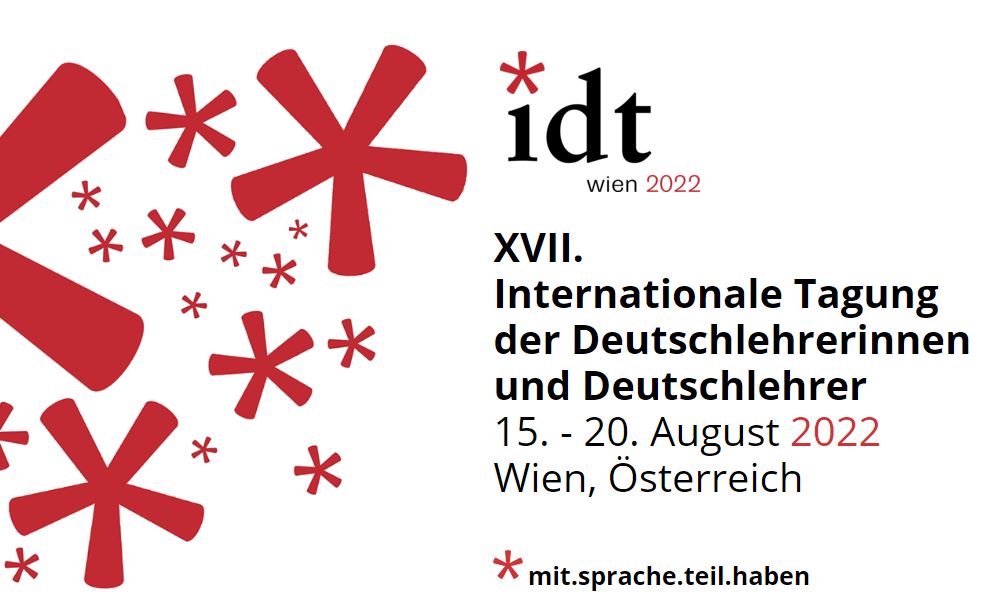
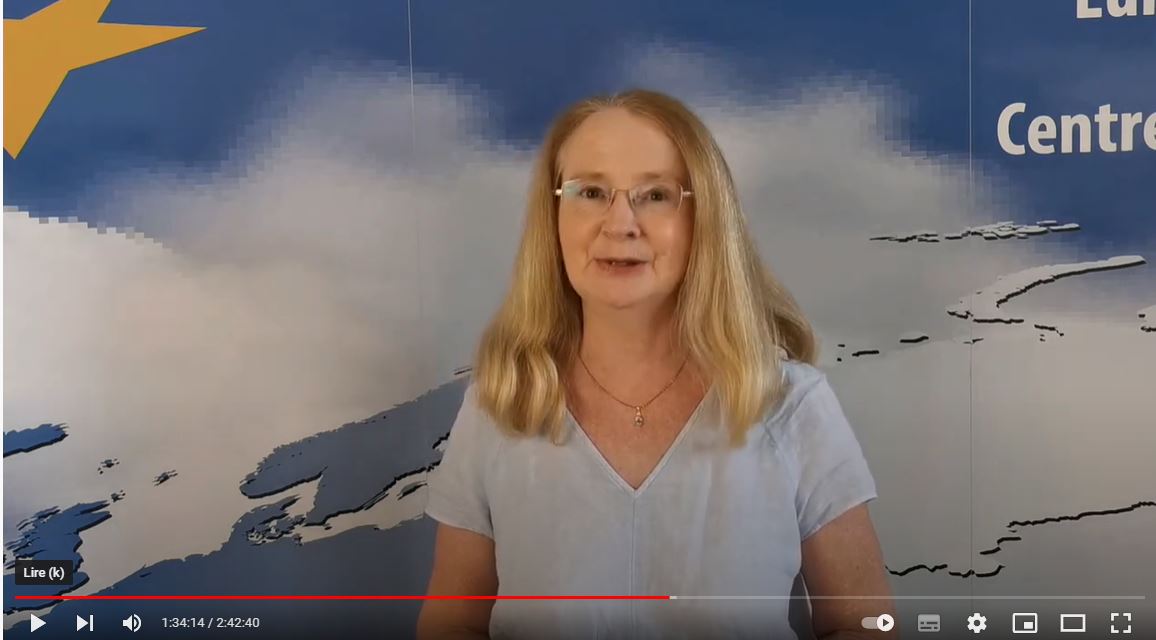
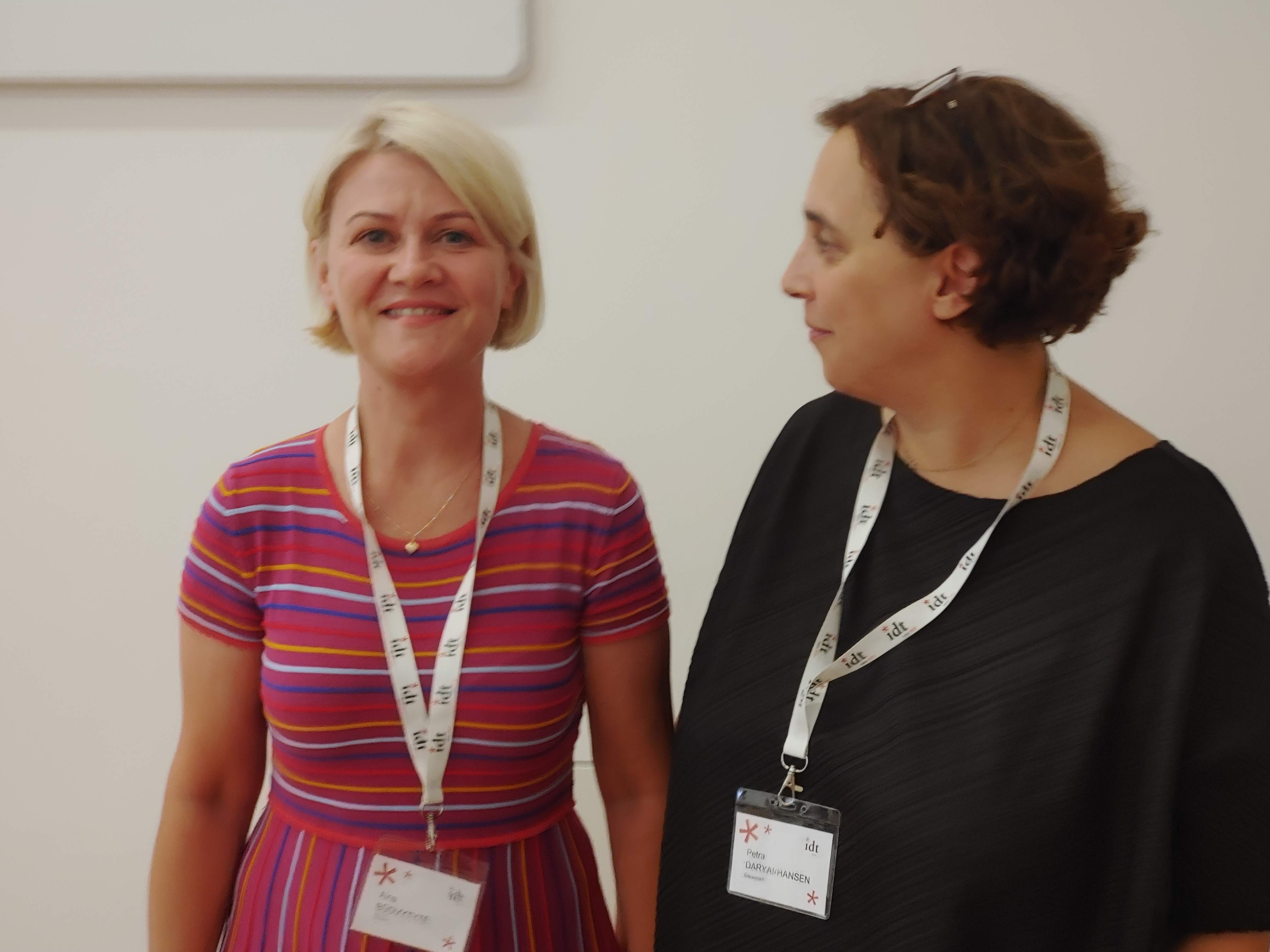
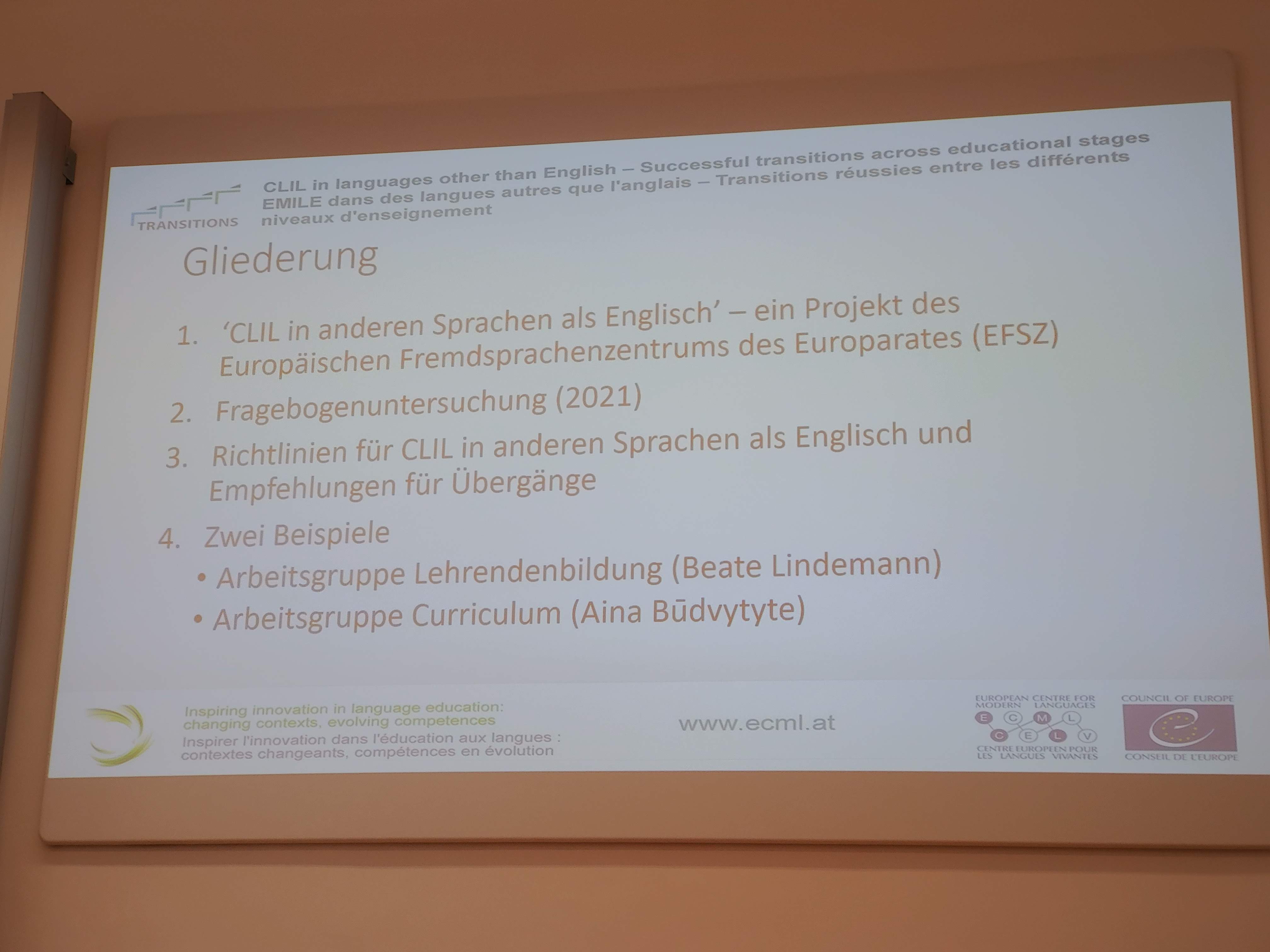
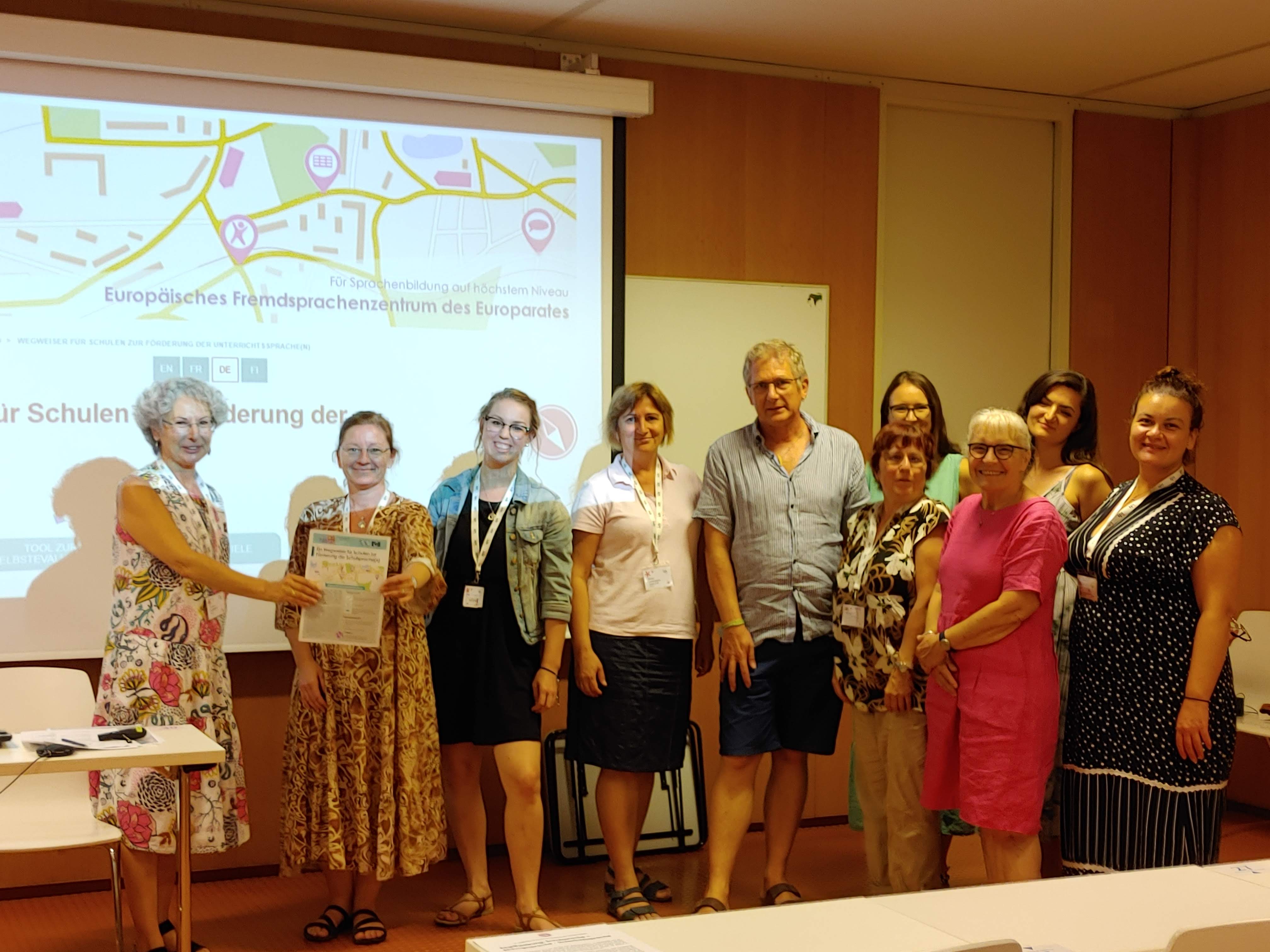
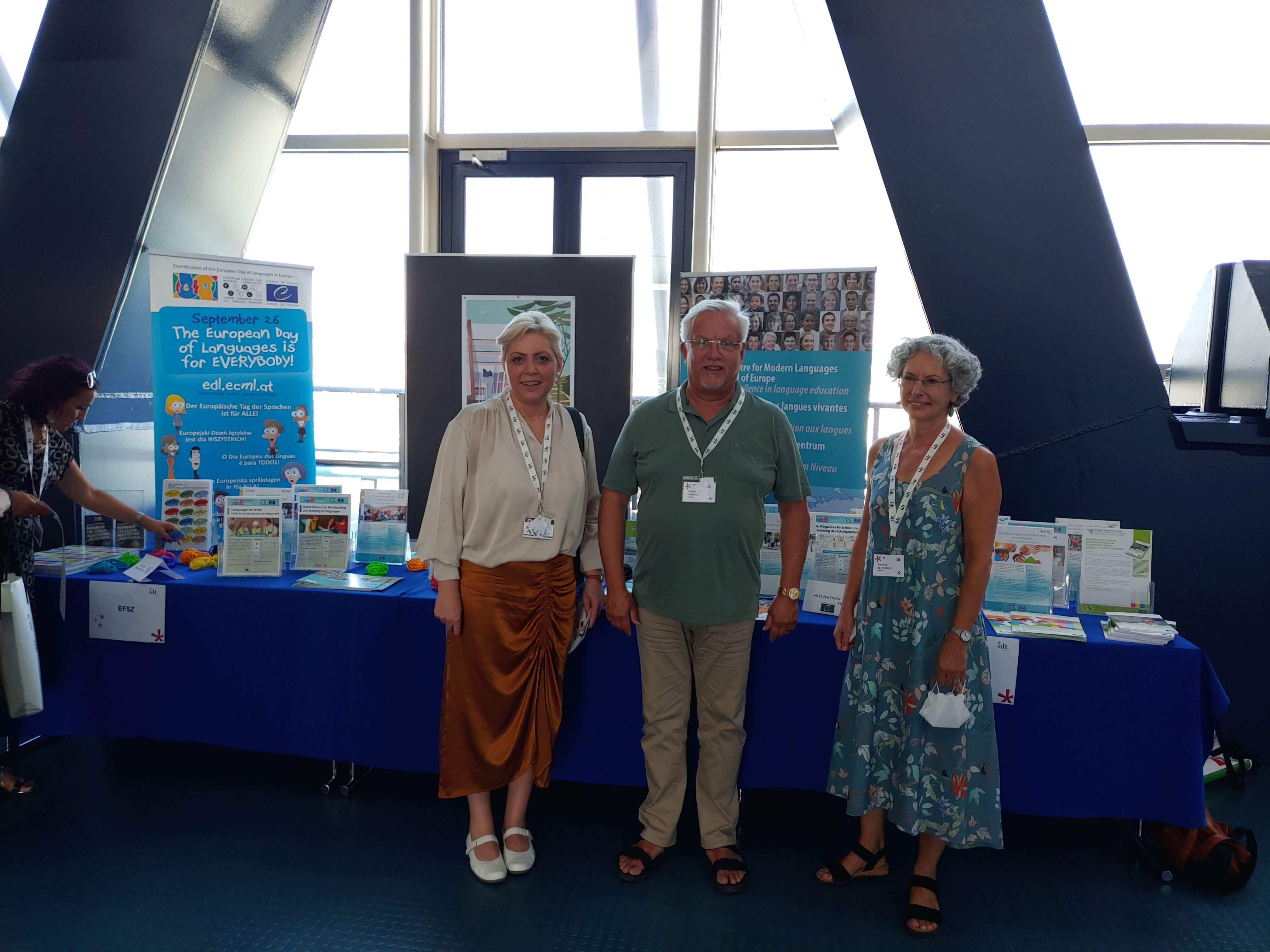
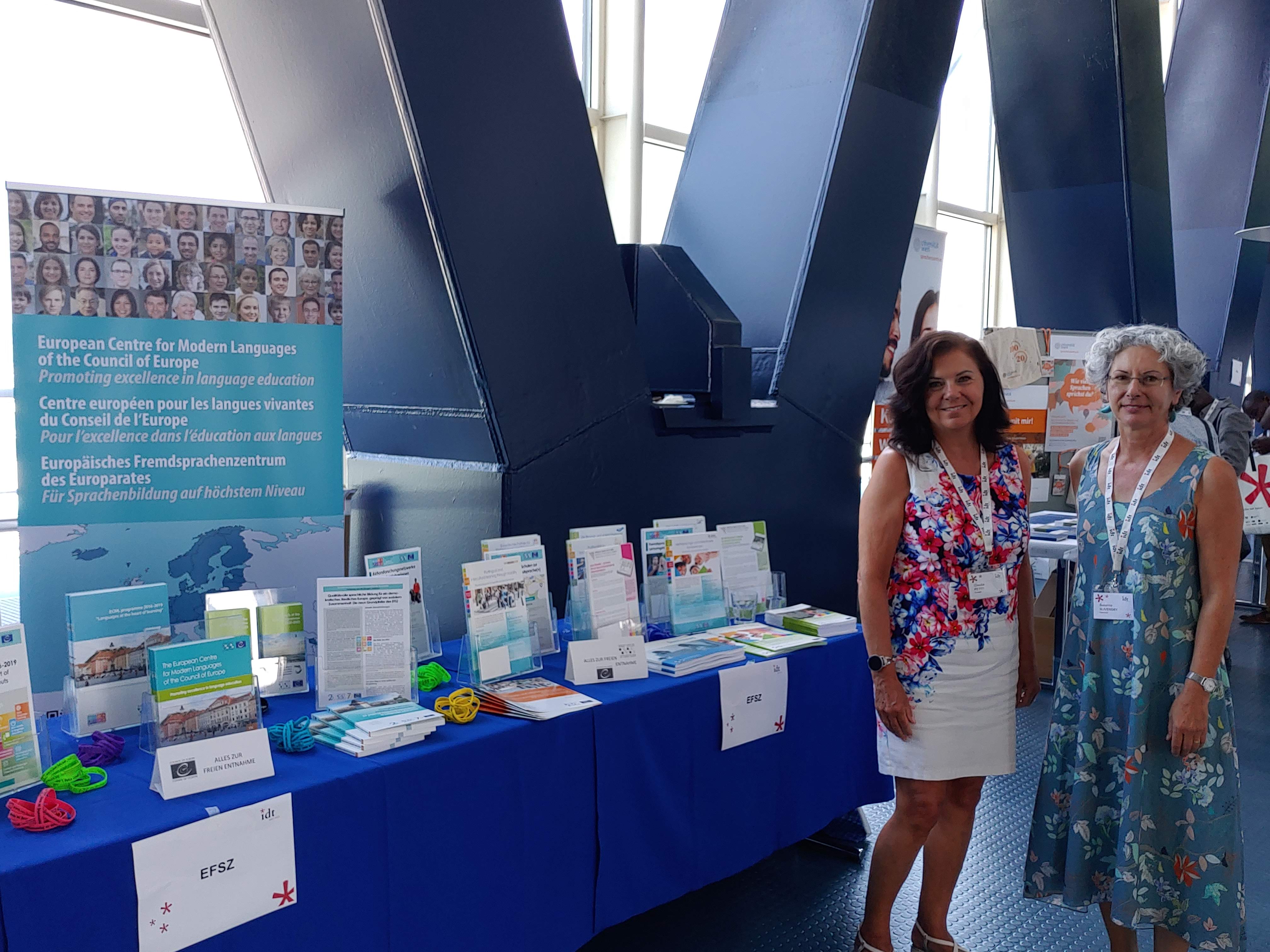
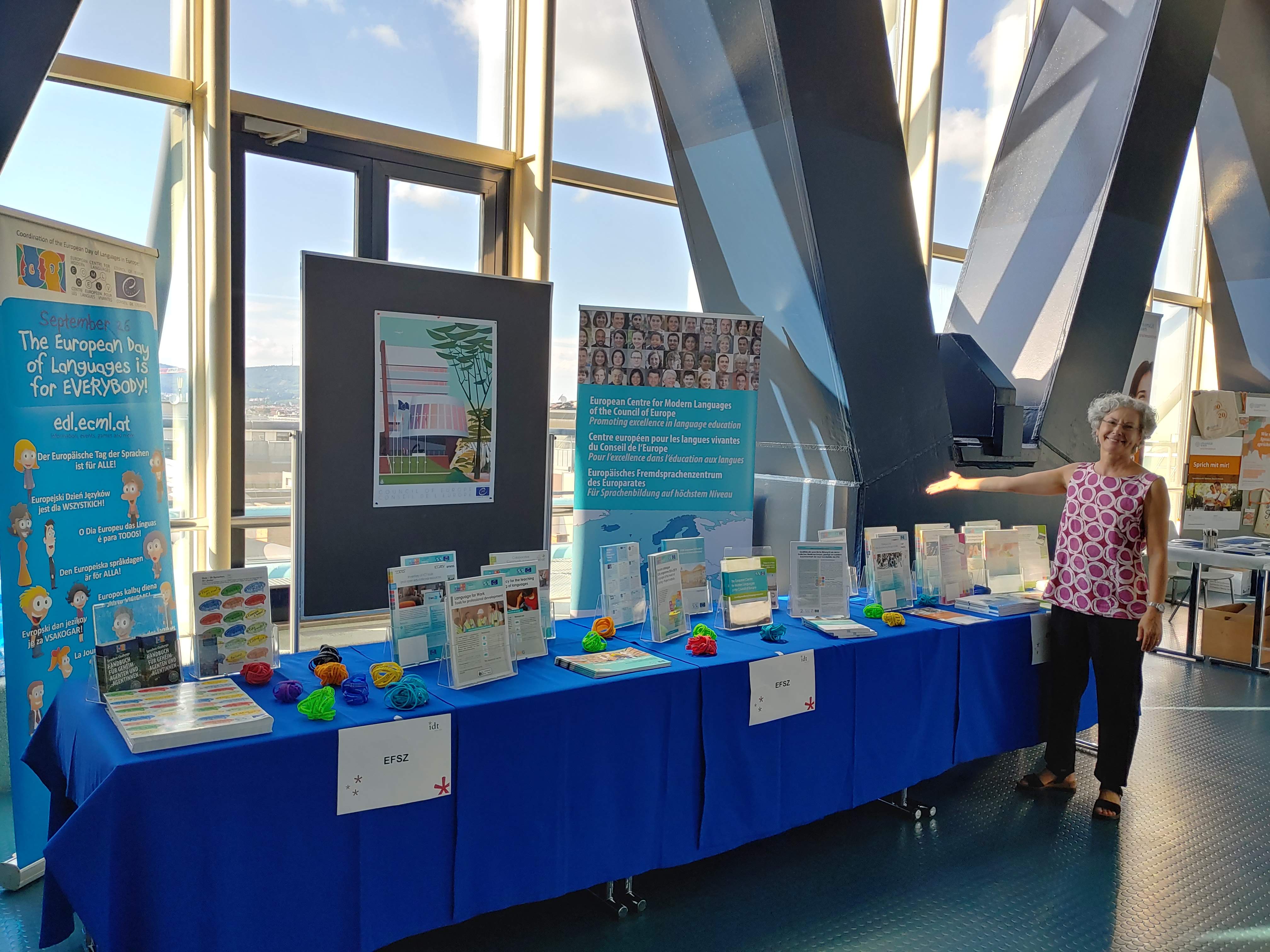
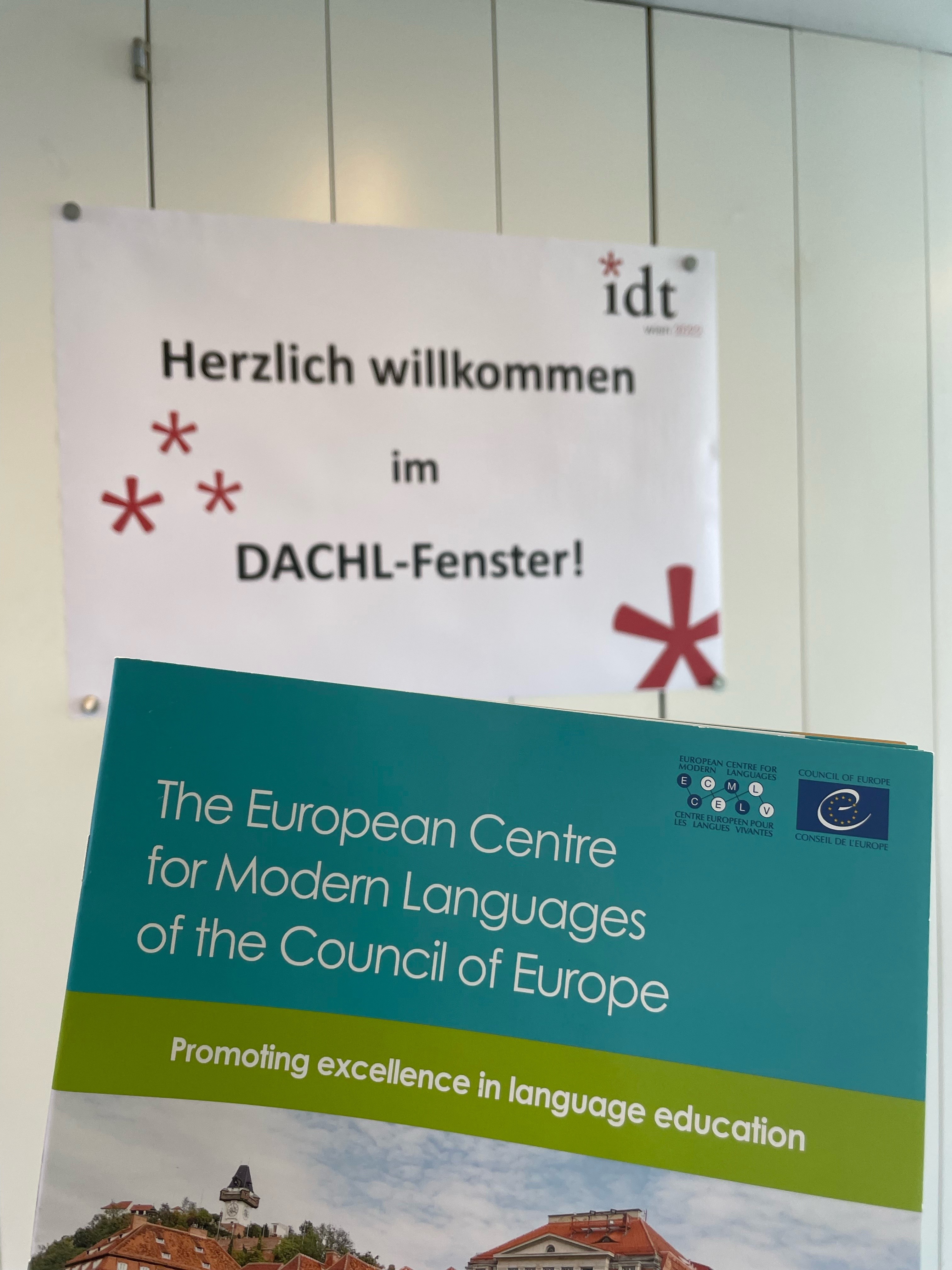

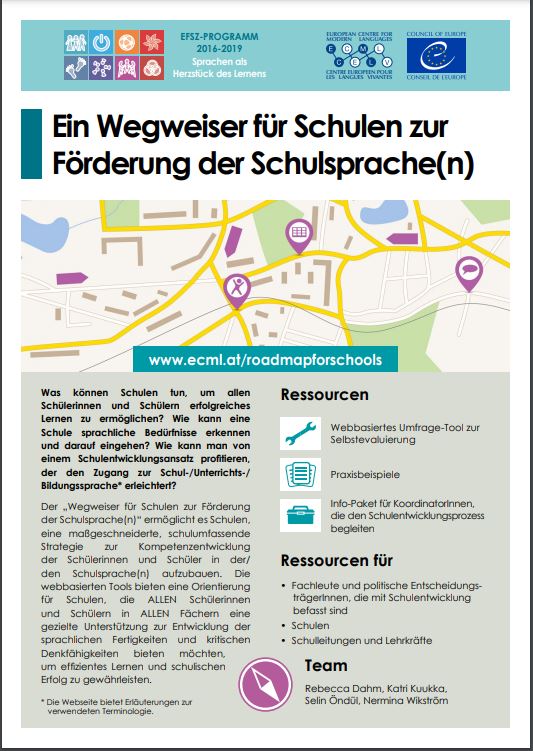
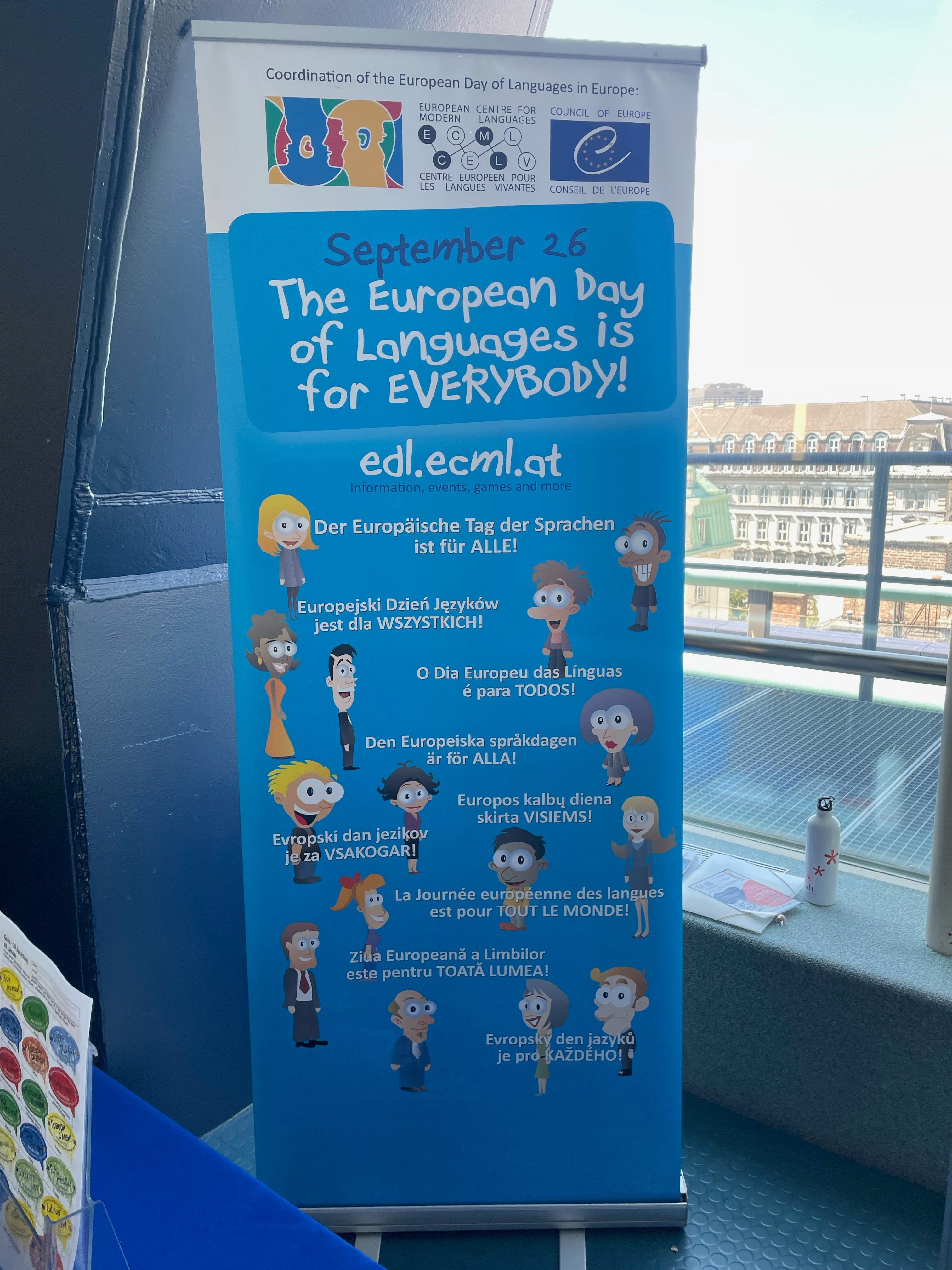
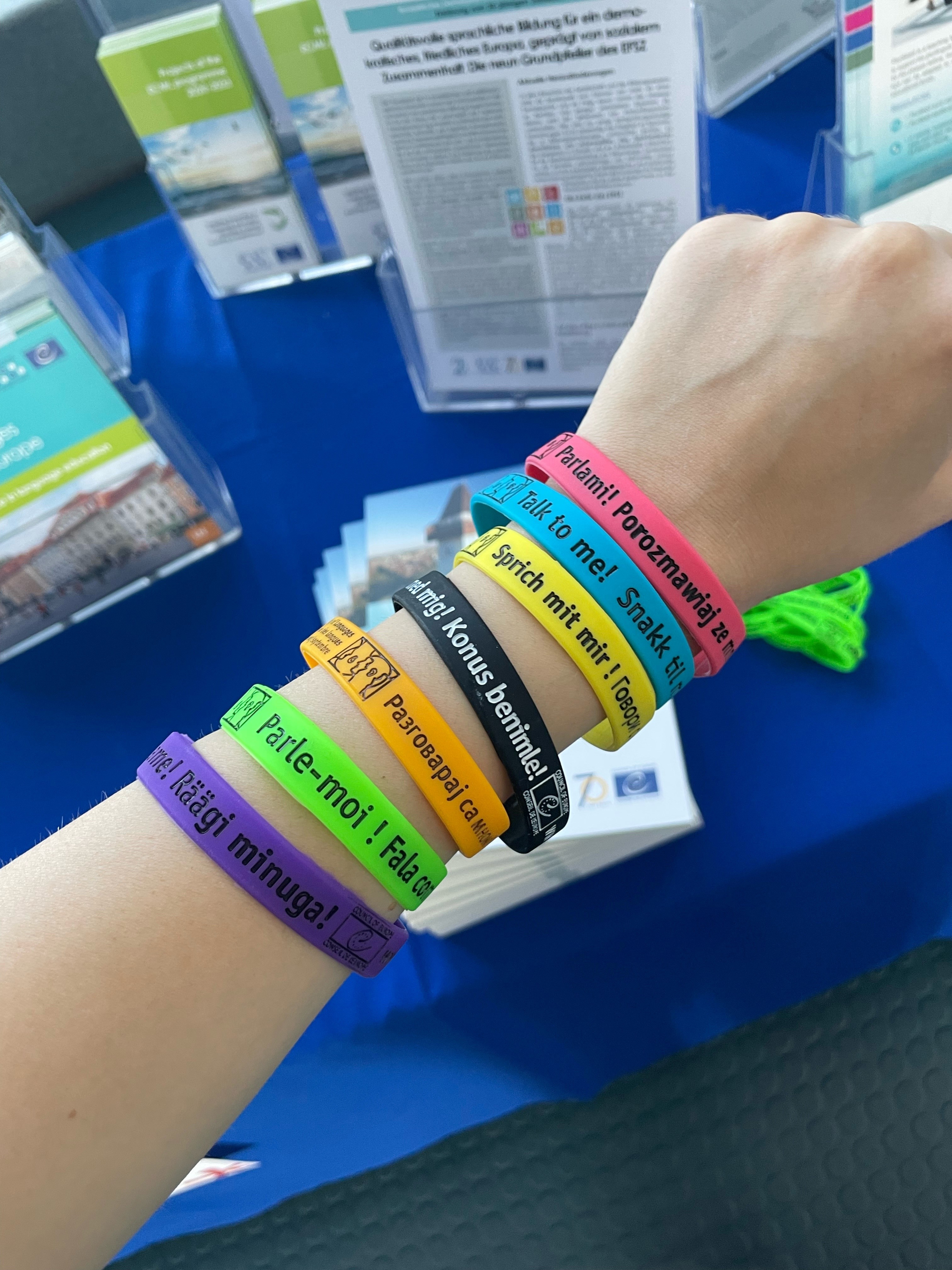
15.12.2021
One questionnaire, 57 experts from 27 countries, 8 working groups – the CLIL LOTE network
In 2020/21, the ECML national authorities kindly provided us with contact details for experts with specific insight into CLIL and/or languages other than English in their country. We approached these experts and asked them to fill in a questionnaire which the project team and associate partners had developed based on previous Eurydice publications (2006, 2017). The survey was completed by experts from 29 countries.
The main results can be summarized as follows: Content and Language Integrated Learning (CLIL) is only found to a very limited extent in languages other than English. Transitions between levels of education are given very little attention. And CLIL is almost never linked to plurilingual education. In the comments section, several experts pointed out that it is difficult to build a bridge between things that hardly exist: “There are so few examples of CLIL LOTE that meaningful transitions are difficult to establish”. You can find the survey results here.
The project’s network meeting in June was attended by around 60 experts, and here the CLIL LOTE network was launched. In the school year 2021/22, 57 experts from 27 countries will form working groups and produce concrete materials to show ways in which CLIL LOTE transitions can be strengthened. These will consist of recommendations for the further development of curricula and teacher education; teaching materials that, among other things, build on the CEFR; portfolio examples and suggestions for how to establish collaboration between schools, teachers, and students at different levels of education.
The project team: Petra Daryai-Hansen (coordinator), Satu Koistinen, Beate Lindemann, Evangélia Moussouri
Project website “CLIL in languages other than English – Successful transitions across educational stages” in English, French and German: www.ecml.at/CLILLOTEtransitions
18.11.2021
Content and language integrated learning and plurilingual education across educational levels
How can we implement Content and language integrate learning (CLIL) across educational stages (primary, secondary, tertiary), both in the language classroom and in other subjects? How can we conceptualize students’ development of language awareness in the context of plurilingual education in primary, lower secondary, and upper secondary language education? And what is the connection between CLIL and plurilingual education?
In the talk, Petra Daryai-Hansen will present the initial results of two projects that she is recently coordinating: the project "Plurilingual education – Minority and majority students' language awareness across educational levels", financed by the Independent Research Fund Denmark, and the project "CLIL in Languages Other Than English – Successful transitions across educational stages", supported by the European Centre for Modern Languages of the Council of Europe and the Danish National Centre for Foreign Languages (NCFF).
The talk is free of charge. Please use the following link to join the talk:
https://ucph-ku.zoom.us/j/62905485312?pwd=SDh1NDdvcVMxSndKTUloQld3MmFPZz09
Passcode: 668804
*****
The 'Digital series of talks on plurilingualism and interculturality' is coordinated by Petra Daryai-Hansen, in collaboration with Natalia Morollón Martí, Natascha Drachmann, Stephanie Kim Löbl, Anna Lena Sandberg and Karoline Søgaard, Department of English, Germanic and Romance Studies, University of Copenhagen.
04.11.2021
Merging Plurilingual and STE(A)M education to develop interculturality: teachers’ theories and practices in context – University of Copenhagen
8 November 2021 - Talk by professor Danièle Moore (Simon Fraser University) in the Digital series of talks on plurilingualism and interculturality
In this talk, Professor Daniele Moore discusses the potential of inquiry-based plurilingual and transdisciplinary projects to encourage critical awareness of plurality in the context of teacher training and K-12 instruction. Using international participatory and collaborative approaches to teacher training, she examines diversely situated ecologies to explore how the theoretical lens of plurilingualism can contribute to raising awareness of translingual practice as an asset to challenge beliefs and praxis and produce alternative knowledges around teaching, learning, and researching-as-teacher-training.
Please register for this talk here (you will register for the whole series but are not obliged to attend all talks).
*****
The 'Digital series of talks on plurilingualism and interculturality' is coordinated by Petra Daryai-Hansen, in collaboration with Natalia Morollón Martí, Natascha Drachmann, Stephanie Kim Löbl, Anna Lena Sandberg and Karoline Søgaard, Department of English, Germanic and Romance Studies, University of Copenhagen.
21.12.2020
CLIL LOTE transitions: A complex and innovative project – and a questionnaire
In this very first year, we have discovered the complexity of our project. The project aims to develop recommendations for implementing CLIL in Languages Other than English (LOTE) across educational stages (primary, secondary, tertiary), both in the language classroom and in other subjects. Furthermore, the project sees CLIL as a vehicle for promoting pluralistic approaches to language learning. The recommendations will be illustrated by practice examples from various contexts.
This complexity can be visualized as follows:

In this very first year, we have also discovered how innovative our project is. Our review of what has been achieved in previous CLIL projects and our study of the research literature in general has shown that the approach to build bridges across educational levels in CLIL LOTE breaks new ground. Furthermore, the connection between CLIL LOTE and pluralistic approaches to languages is hardly an established practice.
We have therefore decided to issue a questionnaire, based on Eurydice Reports from 2006 and 2017, in the beginning of 2021 in order to:
- to collect information about and challenges concerning CLIL in Languages Other than English in the ECML member states, and
- to establish a CLIL LOTE network / a collaboration with representatives from the ECML member states, who could help provide practice examples from different contexts and could either be invited to the project network meeting in 2021 or the project workshop in 2022.
In 2020, we have initiated a collaboration with associate partners in order to gain their perspectives on our work and furthermore, over the next two years, to collect scenarios and materials from different contexts.
Should you have expertise within the field of CLIL LOTE linked to transitions and/or pluralistic approaches, please contact us. We look forward to collaborating with you in this complex, innovative and highly important field!
Petra Daryai-Hansen, project coordinator
Visit the project website "CLIL in languages other than English – Successful transitions across educational stages" (available in English, French, and German): www.ecml.at/CLILLOTEtransitions
23.07.2020
CLIL, languages other than English (LOTE), successful transitions: A first web-based expert meeting
How do we define CLIL and plurilingual education? Which kind of projects have we been involved in - on CLIL and plurilingual education across educational levels? How will we organise this new three-year ECML project?
At this web-based expert meeting we (1) got to know each other and discussed our understanding of the field and our context, (2) agreed on project organisation and design, and (3) defined the next steps.
Building on previous ECML projects, our project will develop recommendations to implement CLIL in languages other than English (LOTE) across educational levels (primary, secondary, tertiary), both in the language classroom and other subjects. Furthermore, the project will promote pluralistic approaches to languages in CLIL (CLsIL).
In this first year, our project will among others
- systematically review what has been done in previous CLIL/CLsIL projects;
- collect recommendations, models and teaching materials from different contexts;
- synthesise existing resources and develop a first draft of recommendations to implement CLIL in LOTE across educational levels;
- initiate a collaboration with associated partners and the ECML national contact points.
In 2021, the project will invite other experts to a network meeting, and in 2022, we will organise a workshop for representatives of the member countries of the ECML. One of the main goals of our project is to illustrate the recommendations through practice examples from various contexts.
Please get in touch, if you are interested to share your knowledge and experiences, or if you would like to participate in our events!
Author: Petra Daryai-Hansen
More information